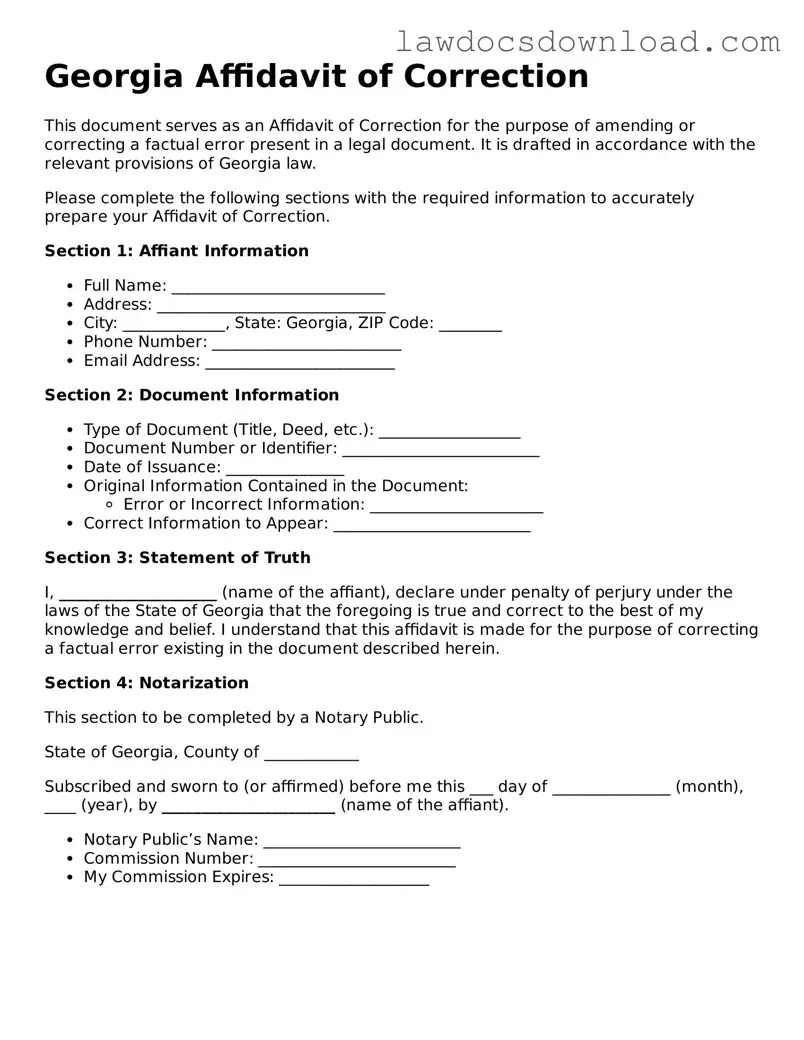Legal Georgia Affidavit of Correction Form
The Georgia Affidavit of Correction form is a legal document used to correct errors in previously filed paperwork or public records. It is typically utilized when mistakes are found in essential documents concerning property, vehicles, or other significant agreements. This affidavit ensures that inaccuracies are officially corrected and acknowledged by the relevant authorities.
Launch Affidavit of Correction Editor Here

Legal Georgia Affidavit of Correction Form
Launch Affidavit of Correction Editor Here

Launch Affidavit of Correction Editor Here
or
Free Affidavit of Correction
Get this form done in minutes
Complete your Affidavit of Correction online and download the final PDF.